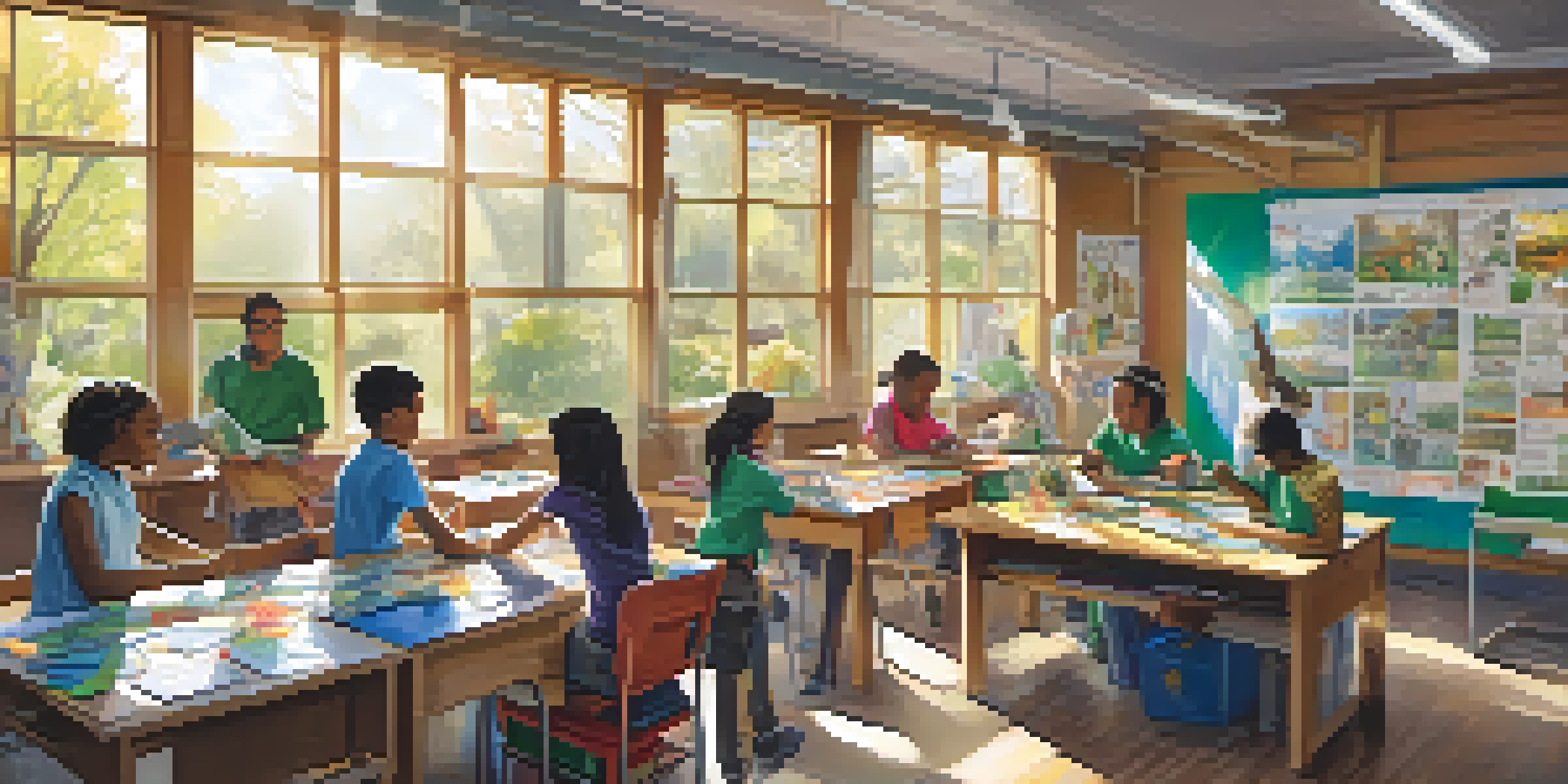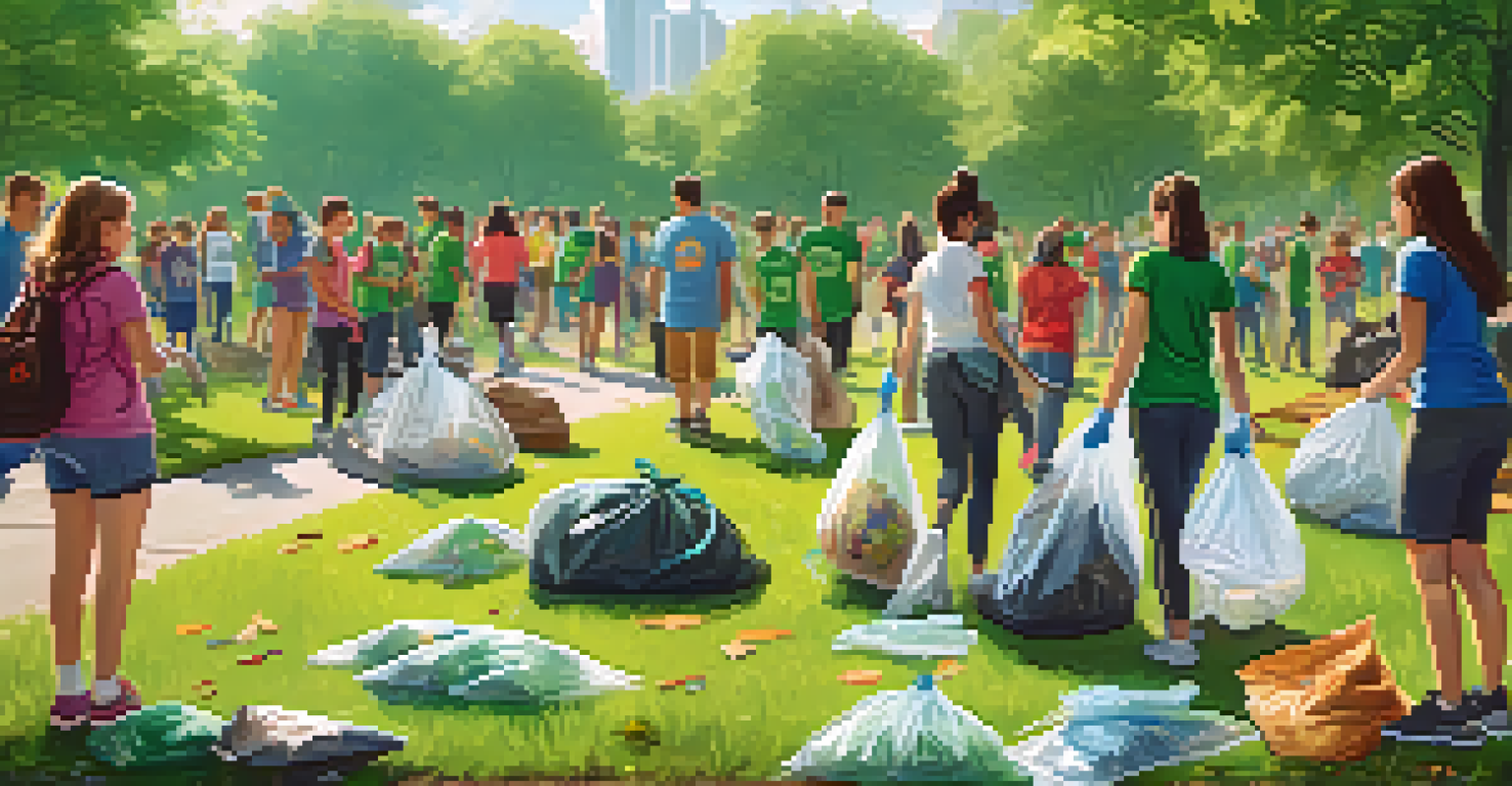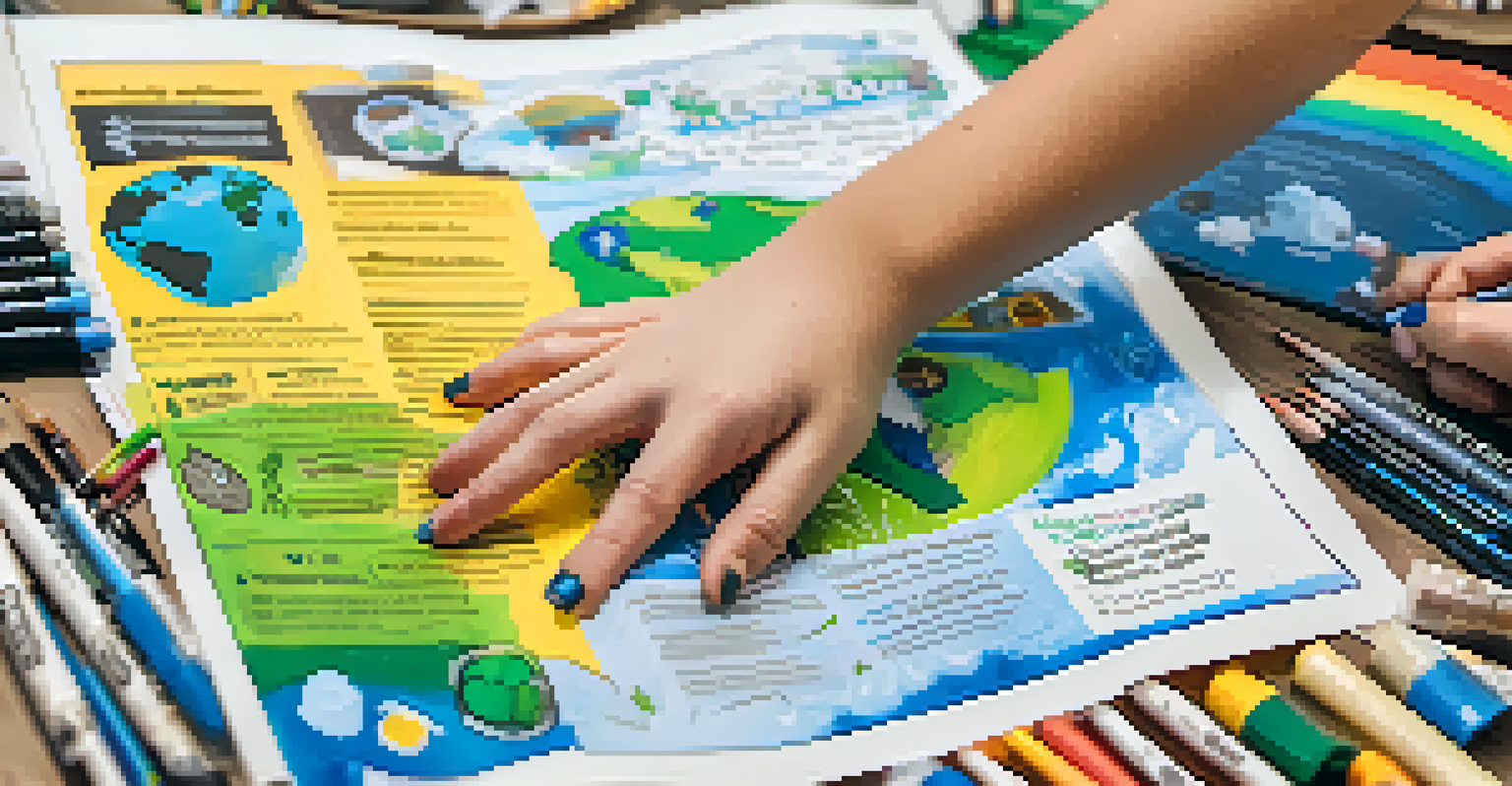Engaging Students in Sustainability Through Workshops

Understanding the Importance of Sustainability Education
Sustainability education is vital in shaping our future leaders. It empowers students to understand their role in preserving our planet. By integrating sustainability into the curriculum, we foster a generation that values environmental responsibility.
The greatest threat to our planet is the belief that someone else will save it.
Workshops serve as a dynamic platform for hands-on learning, making sustainability concepts accessible and relatable. When students engage directly with sustainability issues, they are more likely to internalize the importance of these practices.
Moreover, understanding sustainability helps students connect their academic knowledge with real-world applications, making learning more relevant and impactful.
Designing Interactive Workshops for Maximum Engagement
Creating engaging workshops requires a thoughtful approach that captivates students' attention. Interactive elements such as discussions, group activities, and multimedia presentations can make the learning experience more enjoyable.

Incorporating games or challenges related to sustainability can also spark enthusiasm. Students often respond well to friendly competition, which can motivate them to dive deeper into sustainability topics.
Empower Students Through Engagement
Interactive workshops foster student involvement and deepen their understanding of sustainability.
Additionally, providing opportunities for students to share their ideas fosters a sense of community and encourages collaboration, making the workshops more effective.
Incorporating Real-World Issues into Workshop Topics
Linking workshop activities to current environmental challenges can enhance relevance. For instance, discussing local pollution issues or climate change impacts can help students see the direct effects of sustainability efforts.
Education is the most powerful weapon which you can use to change the world.
By addressing real-world issues, students begin to understand the urgency of sustainable practices. This awareness can lead them to take ownership of their actions and inspire their peers to do the same.
Moreover, real-world examples can serve as powerful conversation starters, encouraging students to think critically about solutions and their roles in creating change.
Utilizing Technology to Enhance Learning Experiences
Technology can play a significant role in modern sustainability workshops. Tools like virtual reality can immerse students in different ecosystems, allowing them to experience environmental changes firsthand.
Online platforms can also facilitate collaboration, enabling students to work on projects with peers from different regions. This exposure to diverse perspectives can enrich their understanding of global sustainability issues.
Connect Learning to Real-World Issues
Addressing current environmental challenges enhances the relevance of sustainability education.
Furthermore, incorporating social media can help students share their workshop experiences, spreading awareness and inspiring others to engage in sustainability.
Fostering a Sense of Community Through Group Projects
Group projects during workshops can strengthen bonds among students while addressing sustainability topics. Collaborative work encourages students to share ideas and skills, making the learning process more enjoyable.
Projects can range from community clean-ups to developing sustainable product designs, providing practical applications for their knowledge. These experiences can leave a lasting impact, as students see the difference their efforts can make.
Creating a sense of community not only enhances learning but also instills a shared responsibility for the environment, encouraging students to continue their sustainability efforts beyond the workshop.
Encouraging Creative Expression in Sustainability
Allowing students to express their creativity can enhance their engagement in sustainability workshops. Art, music, and writing can be powerful tools for communication and can help convey important messages about environmental stewardship.
For example, students can create posters promoting recycling or write songs about climate action. These creative projects not only make learning fun but also empower students to share their visions for a sustainable future.
Encourage Action Beyond the Classroom
Inspiring students to set personal sustainability goals helps them apply their knowledge in real life.
By nurturing creative expression, we help students connect emotionally with sustainability, making them more likely to advocate for change in their communities.
Measuring Success: Evaluating Workshop Impact
Evaluating the effectiveness of sustainability workshops is crucial for continuous improvement. Feedback from students can provide insights into what worked well and what could be enhanced for future sessions.
Consider using surveys or informal discussions to gather student perspectives on the workshop experience. This data can help refine content and engage students more effectively in subsequent workshops.

Additionally, tracking students' follow-up actions related to sustainability can help gauge long-term impact, encouraging educators to adapt and evolve their approaches.
Inspiring Action Beyond the Workshop: Next Steps
To ensure that students carry their newfound knowledge into the future, it's essential to inspire action beyond the workshop. Providing resources, such as local sustainability initiatives or volunteer opportunities, can help students get involved.
Encouraging students to set personal sustainability goals can also promote continuous engagement. Whether it's reducing waste or advocating for greener practices, these goals can empower students to make meaningful changes in their lives.
Ultimately, the goal of these workshops is to create a lasting impact, inspiring students to become advocates for sustainability in their communities and beyond.